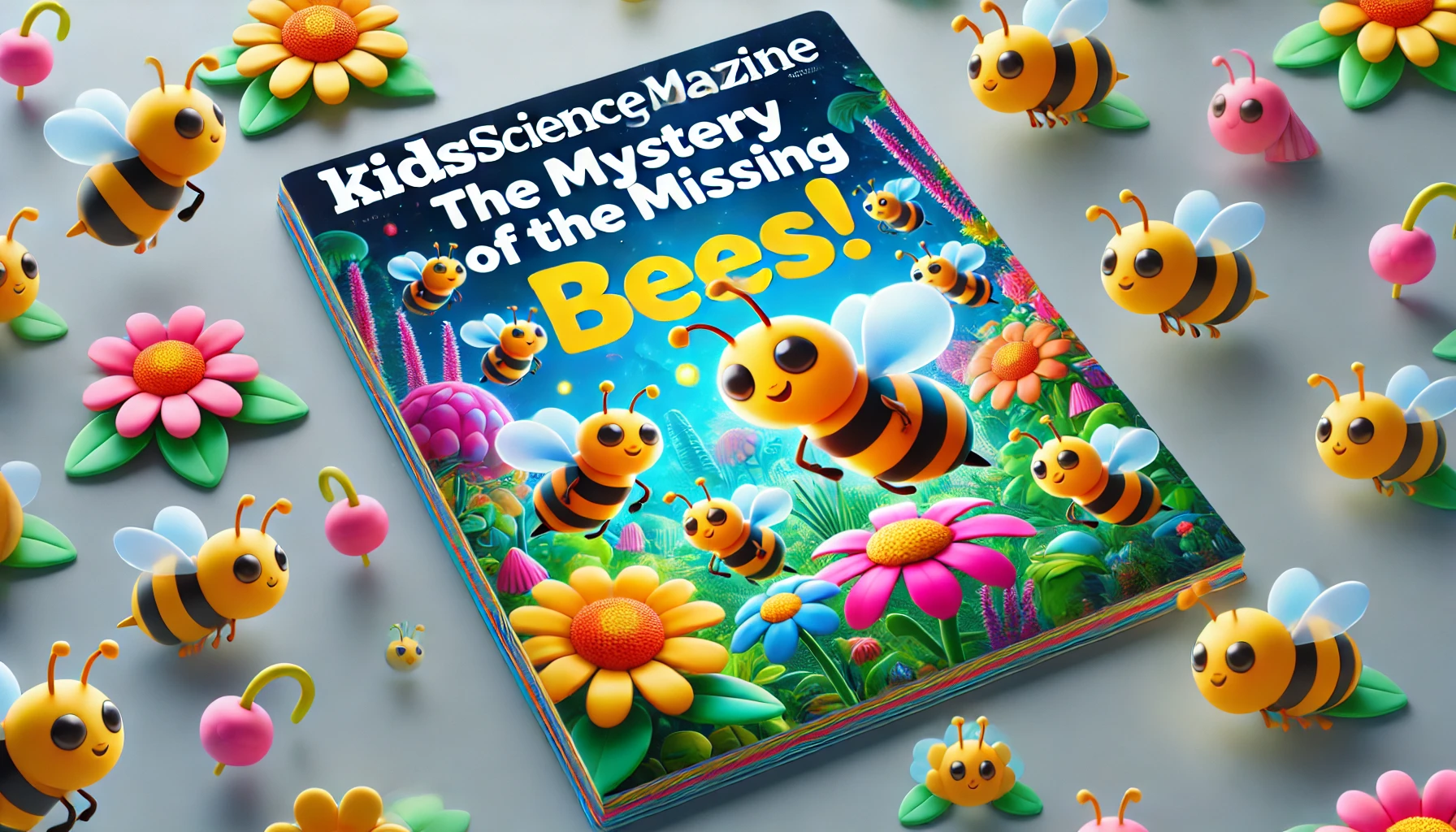
Introduction: The Big Buzzing Mystery
Imagine a world without buzzing bees! It would mean no more sweet honey, fewer colorful flowers, and a lot less food to eat. But right now, bees are disappearing all around the world, and scientists are worried. This mystery of the “missing bees” is one of the biggest puzzles in nature. Why are they vanishing, and how does it affect us? Let’s explore what’s happening to our fuzzy, buzzing friends and why it matters to everyone on Earth!
Background: Why Bees Matter
Bees aren’t just busy making honey—they’re actually one of the hardest-working helpers in nature! They fly from flower to flower, collecting pollen, which helps plants grow and produce fruits, veggies, and nuts. This process is called pollination, and it’s super important because about one-third of all the food we eat depends on bees and other pollinators. For thousands of years, bees have quietly been doing this important job, making sure we have healthy crops and beautiful flowers.
But now, something strange is happening. Over the past few decades, beekeepers and scientists have noticed that bee populations are dropping fast. This means fewer bees in gardens, on farms, and in wild places, too. It’s almost like they’re disappearing without a trace. But why?
Theories: What Could Be Making the Bees Disappear?
Scientists have come up with a few ideas to explain why bees might be vanishing. Let’s look at some of the leading theories!
- Pesticides – These are chemicals that farmers use to protect their crops from bugs. But some pesticides can harm bees, making it hard for them to find their way home or even survive.
- Habitat Loss – Bees need safe places to live, like gardens, meadows, and forests. But as people build more cities and roads, bees lose these homes, and finding food gets harder for them.
- Climate Change – The weather is getting warmer, and this affects bees, too. Different seasons bring different flowers, and if those patterns change, bees might struggle to find food at the right times.
- Diseases and Parasites – Bees are also facing tiny threats, like mites, which are tiny bugs that attach to bees and make them sick. Some diseases can even wipe out whole hives!
- Stress from Traveling – Did you know some bees are actually “traveled” from place to place to help pollinate farms? This stress of moving and adapting to new environments can make it harder for bees to stay healthy.
Interactive Poll: Which of these reasons do you think is the biggest problem for bees? (a) Pesticides (b) Habitat Loss (c) Climate Change (d) Diseases and Parasites (e) Stress from Traveling
Fun Facts: Buzz-Worthy Bee Facts!
- Honey never spoils! Honey that’s thousands of years old can still be safe to eat!
- Bees are incredible navigators. They use the sun, landmarks, and even the Earth’s magnetic field to find their way.
- A single bee can visit up to 5,000 flowers a day. That’s a lot of flying!
- Bees communicate by dancing. They use a special “waggle dance” to show each other where to find flowers!
Quiz Time: What do bees use to communicate? (A) Singing (B) Dancing (C) Buzzing in Morse Code
What If Bees Disappeared Completely?
Without bees, we’d have a big problem! Some of our favorite foods—like apples, strawberries, and almonds—would be hard to find and very expensive. The whole ecosystem would suffer, because many animals depend on plants that bees help pollinate. Even cotton for our clothes might be harder to produce.
Help the Bees: How You Can Make a Difference
The mystery of disappearing bees isn’t just for scientists to solve. You can help, too! Here are some things you can do:
- Plant Bee-Friendly Flowers – Flowers like lavender, sunflowers, and daisies are great choices. Bees will thank you for the food!
- Skip the Pesticides – Encourage grown-ups to avoid using harmful chemicals in your garden.
- Build a Bee Hotel – Bees need safe places to rest. A bee hotel is like a cozy home for them, and it’s easy to make with a small box and some sticks or bamboo.
- Support Local Beekeepers – By buying honey from local beekeepers, you’re helping people who care for bees and keep them safe.
Activity: Make a bee hotel with a grown-up, or draw a garden filled with flowers that bees would love.
Encouragement to Explore: The Buzz Continues!
So, what do you think about the mystery of the missing bees? There’s so much left to discover, and maybe one day, you could be the one to figure it all out! Whether you grow flowers for bees, learn more about pollination, or study the environment, there are so many ways you can help protect these amazing insects.
So, let’s keep learning, exploring, and caring for our little buzzing friends. Who knows? With your help, we might just solve the mystery of the missing bees!






